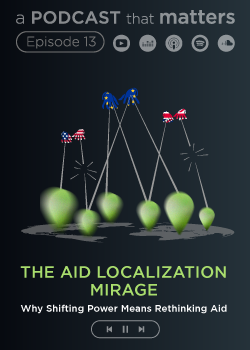Print
Fousseyni D. Country Manager/Partnerships' Manager/Programs' Manager
Last update: Oct 7, 2024
Details
Citizenships:
France, Mali
Languages:
Bambara, English, French
Highest Degree:
MBA
Experience:
11 years
Salary:
Countries:
Mali, UK, USA
E-mail(s):
Attachments• 2
Associated Awards • 0
About
To whom it may concern,
I have received a good education. I have spent amazing years in Collegeville Minnesota, where I obtained a degree in Management Leadership. I then applied and got accepted in an MBA program at the London School of Commerce in England.
Upon my graduation with an MBA, I returned in Mali where I started working in the agricultural sector as the Business Manager of AID-SA (Agro Industry Development). During my time at AID, I got introduced to development work and I got truly inspired to get involved with something bigger. Soon afterwards, I have applied as project assistant at ICCO Cooperation (a Dutch NGO), and got an offer for a one year contract in 2016. I have been with ICCO Cooperation ever since, and got promoted to Programs Manager while taking-on more tasks.
My job as a Programs Manager consists of creating and diversifying sources of income for rural women cooperatives. I have facilitated and managed 3 USAID Public Private Partnership programs (PPP) in Mali, 2 on the Shea value chain, and 1 on the Beeswax value chain.
These projects aimed to, increase the revenue of rural women working in the Shea value chain, assist the women in diversifying their income through the introduction and development of new value chains, and help the cooperatives access markets and financing opportunities through trainings and capacity building.
My experience as an economic development programs manager made me realise that as development agencies focus on creating MSMEs (micro, small, medium enterprises) because they help create jobs and play a major role in the development of rural communities. But once the projects end (3 to 5 years at most), these entities are left to find financing for themselves, in a very hostile environment. Financial institutions are reluctant to finance agricultural activities, and when they do, the interest rate is so high that there is little to no incentive for the small business owners.
During my time at ICCO, I have met and dealt with many government agencies and decision makers, through meetings and workshops.
----------------------------------------------------------------------------------------------------------------------------------------------
Madame/Monsieur,
Je détiens une maitrise en Gestion et Leadership de l’Université de Saint John’s dans le Minnesota (USA) et d’un MBA en Affaire International de la London School of Commerce, au Royaume Unis.
Après avoir obtenu mon MBA, je suis rentré au Mali où j'ai commencé à travailler dans le secteur agricole en tant que Business Manager de AID-SA (Développement de l'industrie agroalimentaire), une entreprise privée. C’est au cours de mon séjour à l'AID que j'ai été initié au monde du développement rural et j'ai été vraiment inspiré de m'impliquer dans quelque chose de plus grand. J'ai postulé en tant qu'assistant de projet chez ICCO Coopération (une ONG néerlandaise), et j'ai reçu une offre pour un contrat d'un an en 2016. Je suis resté avec ICCO Coopération pendant 3 ans et demi, et j'ai été promu responsable de programmes de développement économique et point focal des outils de suivi et évaluations Akvo et ScopeInsight.
Mon travail en tant que gestionnaire de programmes de développement économique consistait à créer et à diversifier des sources de revenus pour les coopératives de femmes rurales. J'ai facilité et géré 3 programmes de partenariat public-privé (PPP) de l'USAID au Mali, 2 sur la chaîne de valeur du karité et 1 sur la chaîne de valeur de la cire d'abeille.
Ces projets visaient à augmenter les revenus des femmes rurales travaillant dans la chaîne de valeur du karité, à aider les femmes à diversifier leurs revenus grâce à l'introduction et au développement de nouvelles chaînes de valeur, et à aider les coopératives à accéder aux marchés et aux opportunités de financement grâce à des formations et au renforcement des capacités.
Mon expérience en tant que responsable de programmes de développement économique m'a fait réaliser que la plupart des agences de développement misent sur la création de MPME (micro, petites et moyennes entreprises) car elles contribuent à créer des emplois et jouent un rôle majeur dans le développement des communautés rurales. Mais une fois les projets terminés (3 à 5 ans au plus), ces entités sont laissées pour trouver des financements pour elles-mêmes, dans un environnement très hostile. Les institutions financières sont réticentes à financer les activités agricoles et, lorsqu'elles le font, le taux d'intérêt est si élevé qu'il y a peu ou pas d'incitation pour les propriétaires de petites entreprises.
Pendant mon séjour à ICCO, j'ai rencontré et traité avec de nombreux organismes gouvernementaux et décideurs, à travers des réunions et des ateliers.

